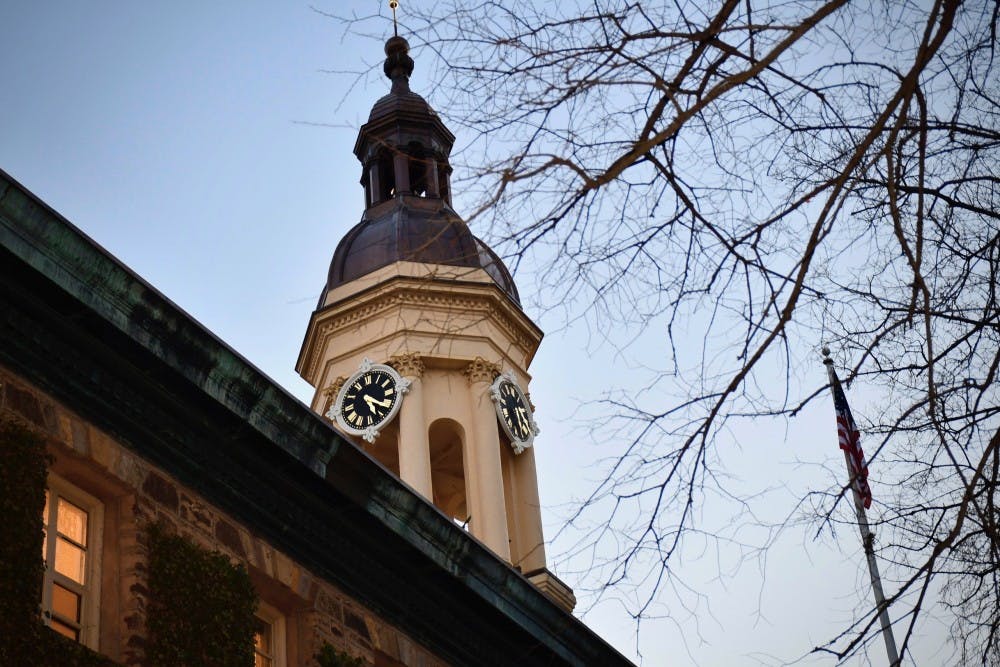Last month, Princeton secured the number-one spot among national universities on the U.S. News & World Report’s Best Colleges ranking, for the ninth year in a row. As I read more into what criteria the rankings take into account, however, I realized that our first place position should come as no surprise, for U.S. News weighs only those criteria at which Princeton most excels, such as student test scores and alumni donation rates. The ranking system seems to be written almost specifically for Princeton (perhaps because we’ve been around for 273 years).
It is dangerous to blindly assume that our position at the top extends to all aspects of the University, because that is far from the truth. Many critical factors, in which Princeton would certainly not receive a first-place ranking, are excluded by U.S. News. Perhaps U.S. News’s rating system captured the essence of a high-performing educational institution 50 or 100 years ago.
In the 21st century, however, with increasing emphasis on both equitable representation among undergraduate students and ethical institutional behavior, there is more to a university than test scores and salaries post-graduation. U.S. News should recognize this and incorporate these components into their assessments. For now, though, it’s up to us to comprehensively evaluate what score Princeton really should receive and what our number one rating means in this day and age.
Consider, for instance, the University’s finances. Should a first-place institution refuse to divest from various exploitative industries such as fossil fuels and private prisons? On a planet suffering from accelerating climate change and in a country grappling with its racist incarceration policies, this most certainly isn’t A+ behavior. The University’s investments send a powerful statement about the values that it supports — yet, “ethical investment” is nowhere to be found within U.S. News’s numbers. If they did, “lesser” schools by U.S. News’s standards, such as University of Dayton (U.S. News #132) and Syracuse University (U.S. News #54), could take top slots, because of their commitments to full fossil fuel divestment.
More mundane operational elements also need improvement. For instance, does a number-one university still procure electricity from fossil fuels when viable alternatives exist? Not when 44 other schools across the country have successfully switched to 100% renewable energy generation. Princeton could do significantly better than the five percent it generates from our on-campus solar farm.
Does a first-place university still rely on single-use plastics and have a student body so unaware of how to properly recycle that we’ve witnessed a decline over time in our recycling rate to an incredibly low 23%? Not in an era when we know the toxic effects plastics are having on our environment and on human health (to be fair, most universities would receive poor scores on recycling, because of the abysmal education and awareness of sustainable waste management that we receive in America).
I’ve cited examples related to sustainability, with which I’m most familiar, but I’m sure that if you asked other students around campus, they’d cite a variety of other areas in which Princeton could improve, from Title IX enforcement to student engagement at University-wide meetings.
I still believe that Princeton deserves its number-one position for many of the reasons that U.S. News cites. We cannot, however, let this score limit or prevent us from seeing our shortcomings. Princeton has long held a reputation of being conservative and resistant to rapid change. Perhaps that’s because we want to maintain our first-place ranking and are afraid of doing anything differently.

Instead of hiding under our first-place prize and committing to as little change as possible to maintain the status quo, we need to start living up to our comparative failures, the ways in which we are actually doing worse than other institutions, in order to come to terms with where we need to go. That’s what a number one university does in the 21st century — seeks out how it can improve not only at teaching, but at making the world a better and more sustainable place.
Claire Wayner is a sophomore from Baltimore, M.D. She can be reached at cwayner@princeton.edu.









